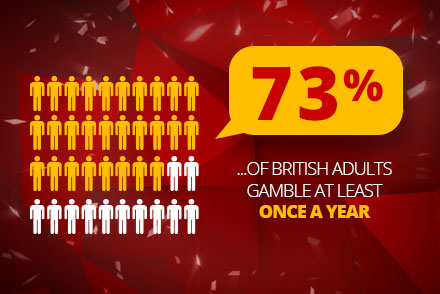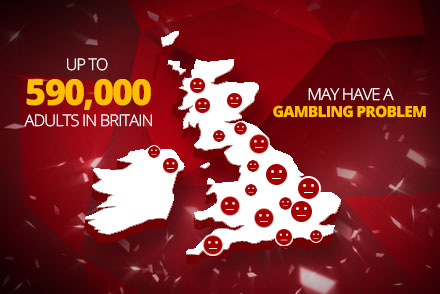Why People Gamble
The gambling industry takes in £7.1 billion a year in the UK alone, with players across the country indulging in lotteries, sports betting, casino games, poker and bingo both online and offline and most doing so responsibly.
 In the same way as some people will spend money on visiting theme parks or dining at Michelin-starred restaurants, a night at the casino or a trip to the bingo are leisure pursuits for the majority of people, who are able to set and stick to wagering limits. Although it is fantastic to win cash through gambling, the enjoyment for many comes from the action of playing the games, the ‘buzz’ that they bring and the suspense derived from waiting on the outcome of wagers.
In the same way as some people will spend money on visiting theme parks or dining at Michelin-starred restaurants, a night at the casino or a trip to the bingo are leisure pursuits for the majority of people, who are able to set and stick to wagering limits. Although it is fantastic to win cash through gambling, the enjoyment for many comes from the action of playing the games, the ‘buzz’ that they bring and the suspense derived from waiting on the outcome of wagers.
A lot of gamblers also enjoy the competitive aspect of gambling. At a casino table they could be attempting to beat the dealer and the other players to the prize, with a large win bringing a sense of achievement.
As long as your gambling isn’t negatively affecting you or those close to you, either financially or emotionally, then it can be a fun and harmless social activity.
Why People Gamble Too Much
 However, those with a gambling addiction find that wagering and betting can become a way of life that they find impossible to abandon. Whether their gambling takes up so much time they neglect their loved ones, or costs them so much that they find themselves in crippling debt, problem gamblers struggle to stick to safe limits on the amount of time or money they spend on gambling, even though they know their habits are causing trouble.
However, those with a gambling addiction find that wagering and betting can become a way of life that they find impossible to abandon. Whether their gambling takes up so much time they neglect their loved ones, or costs them so much that they find themselves in crippling debt, problem gamblers struggle to stick to safe limits on the amount of time or money they spend on gambling, even though they know their habits are causing trouble.
Sometimes they can become addicted to the buzz of the game and cannot stop thinking about the adrenaline rush. In some cases, they have won big early on and are chasing another huge payday to no avail, while in other situations they may throw themselves into heavy gambling as a misguided way of coping with stressful situations.
There are biological, psychological and social factors that can combine to make gambling a serious issue for some people. The body will respond to the risk of the gambling by ‘rewarding’ the player with a rush of feel-good hormones, the brain will allow them to escape the tribulations of day-to-day life by concentrating on the game at hand and the social acceptance they find from strangers in online or offline venues offers them relief from underlying stresses. This can quickly lead to gambling habits that seem impossible to break, even if the sufferer recognises that these patterns are unhealthy.
If you think you have a problem with gambling, take the self-assessment test.
